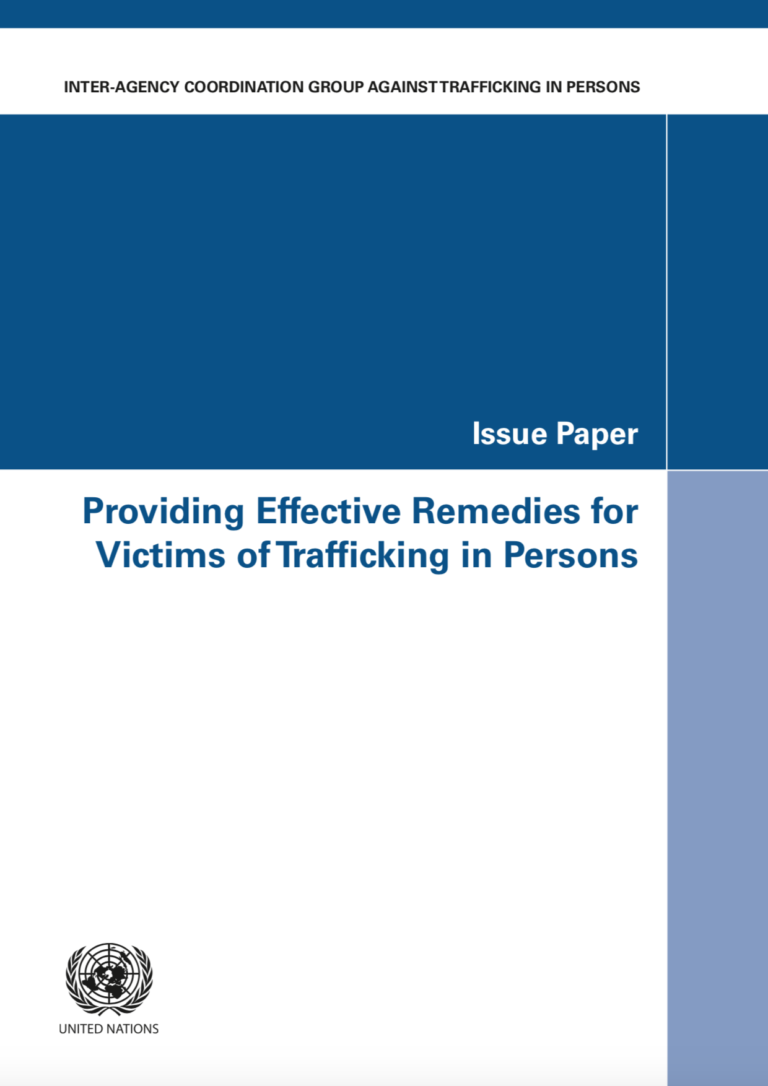This ICAT issue paper argues that access to remedies for trafficking victims should be a core component of efforts to address human trafficking, and provides illustrative examples of effective remedies and limitations that currently exist in different jurisdictions. Effective access to remedies is important not only for victims’ recovery but also for reaffirming their rights and preventing re-victimisation. The paper also looks at the right to effective remedies for victims of human trafficking under international law, the scope of applying effective remedies, the challenges to providing remedies to victims at the national level, and offers practical recommendations to improve access to remedies (including specific recommendations for law and policy-makers, as well as non-State actors) and to facilitate related international cooperation.

